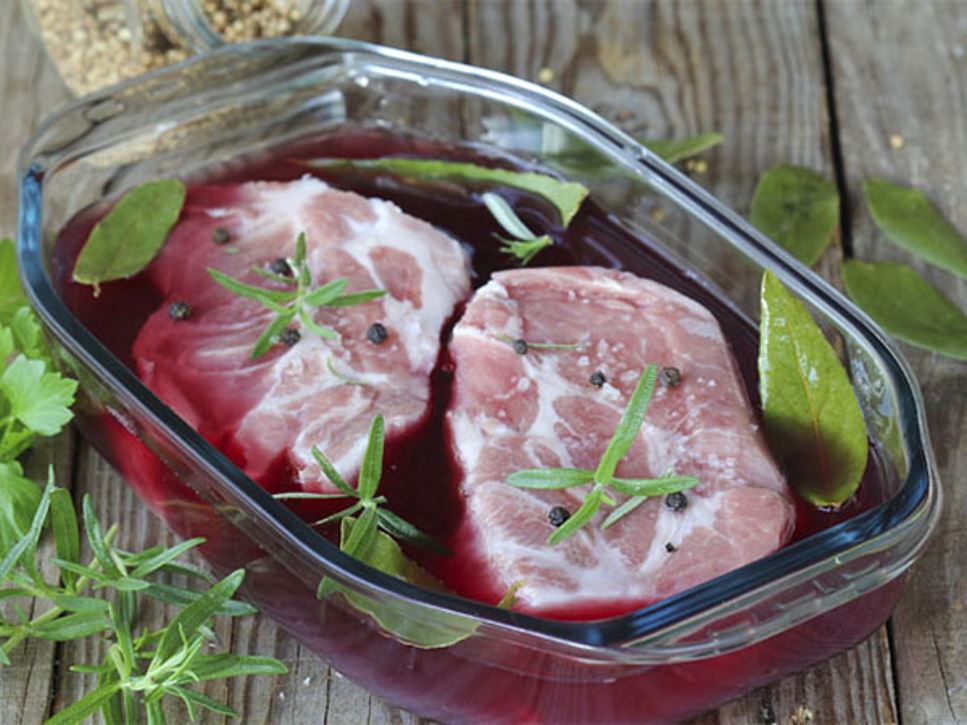Perhaps you're planning to prepare chicken breasts, vegetables skewers or tofu "steaks" and you're pondering this culinary dilemma: "To marinate or not to marinate?" A burst of extra flavor awaits your taste buds if your response is "to marinate." But flavor is not all that may be waiting on your plate.
A marinade may be oil-based or contain an acid such as vinegar, lemon juice or wine and include spices, herbs or other tasty ingredients. Prior to grilling, roasting or sautéing, a food is soaked in this savory sauce to enhance flavor, tenderization or juiciness. Though a marinade can transform food from humdrum to yum, if not utilized with care it can also lead to food safety concerns.
It won't matter how mouthwatering your meat, poultry, fish, veggies or other food is if it becomes a source of food poisoning. Foodborne illness, also known as food poisoning, is the reason why more than 128,000 Americans wind up in the hospital every year. So when you opt for scrumptiousness, always aim for marinating safely by following these five straightforward steps.
- Contain it. Marinate food in a food-safe container. Don't use metal as the acid in the marinade can interact with it. If you prefer to marinate in sealable food-safe plastic bags, you'll need to discard them after use, so look for eco-friendly options or use reusable glass containers to minimize waste.
- Let the fridge be your friend. Make sure the container of marinating food is fully covered. Place it on the bottom shelf in the refrigerator (at or below 40°F), not on the kitchen counter. This will keep food out of the temperature "danger zone," which is the temperature range where bacteria multiply and may reach unsafe levels.
- Pack properly for the park. Consider a picnic cooler as a transportable refrigerator. Make sure your marinating food is in a well-sealed container. Ideally, place it in a cooler designated just for perishable items, pack with ice and keep out of direct sunlight.
- Be mindful with the marinade. Cross-contamination can lead to food poisoning. This may occur when a marinade is used on raw meat, poultry or fish, and then reused "as is" on cooked food. If reusing marinade on ready to eat food, boil it first before reusing to destroy harmful bacteria. When possible, plan ahead by setting aside some fresh sauce strictly for this purpose before marinating.
- Cook for safety; make it tasty. Don't rely solely on your senses. Use a food thermometer to assure marinated meat, poultry or fish is prepared to a safe minimum internal temperature. And regardless of the type of food you're preparing, remember this: When food is cooked to the proper temperature, it won't be undercooked — or overcooked.
Jackie Newgent, RDN, CDN, is a Brooklyn-based culinary nutritionist, writer and media personality.
Find a Nutrition Expert
Looking for credible nutrition information and recommendations? The Academy of Nutrition and Dietetics' network of credentialed food and nutrition practitioners are ready to help!

